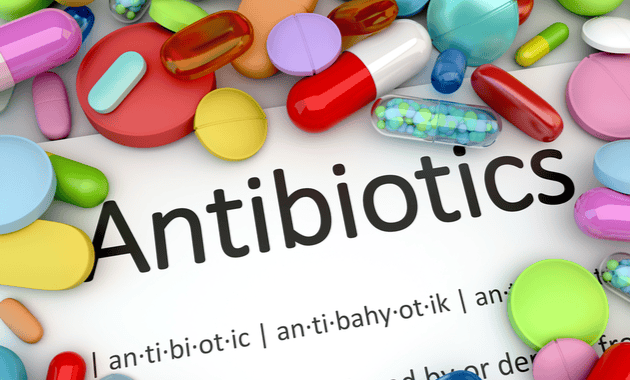
World Antibiotic Awareness Week is from 12-18 November 2018. The aim is to increase global awareness of antibiotic resistance and to encourage everyone (health care providers and consumers) to avoid the further emergence and spread of antibiotic resistance.
Antibiotics are our go-to medicines for almost every illness.
Have a fever? Pop an antibiotic.
Have flu? Pop an antibiotic.
Have chills? Pop an antibiotic.
Have an upset stomach? Pop an antibiotic.
Most often than not, we do not go to a doctor but use an antibiotic to fight an infection. Be it be an antibiotic prescribed long back for common infections or share the one given to your family member But this is not right because antibiotic treat bacterial infections ONLY. And your doctor prescribes antibiotics for a reason (and not for every condition as you might think of!)
So this World Antibiotic Awareness Week, let’s get all your facts about antibiotics right.
What is an antibiotic?
Antibiotics — as the name suggests — are medicines used to prevent the growth of bacteria or kill bacteria. They help to treat an infection by making it difficult for disease-causing bacteria to grow and proliferate.
The mechanism of action varies from antibiotic to antibiotic but most work by:
-Weakening the cell wall of bacteria and bursting its contents, thereby killing it.
-Inhibiting the bacterial growth, multiplication and spread
What are the types of antibiotics?
Antibiotics are classified into-
Broad-spectrum antibiotics work on a wide range of bacteria. An antibiotic belonging to this category can be used to treat multiple infections such as an ear infection, sinus infection and throat infection.
Narrow-spectrum antibiotics work on specific types of bacteria. An antibiotic that belongs to this category can only be used to treat a single infection such as a throat infection.
What can be treated with antibiotics?
Antibiotics can be used to treat infections caused by bacteria. Some of the common bacterial infections are:
-Dental infections
-Sinus infection
-Ear infections
-Strep throat
-Skin infections
-Urinary tract Infections (UTIs)
-Kidney infections
-Bacterial pneumonia
-A whooping cough
Antibiotics DO NOT work against viral or fungal infections such as-
-Common cold
-Flu
-A cough
-Bronchitis
-A sore throat
-Stomach flu
-Ringworm
**Consult India’s best doctors here**
What is antibiotic resistance?
According to the World Health Organization, antibiotic resistance occurs when antibiotics used to treat an infection fail to do so. This is because the bacteria change in response to the use of these drugs which over time makes them resistant to the drugs. Hence, it becomes difficult to treat infections caused by these bacteria. So it is bacteria (and not humans or animals as most people believe) which become antibiotic-resistant.
Is antibiotic resistance a problem?
Antibiotic resistance is one of the biggest threats to global health. It can affect everyone irrespective of the age and region. The misuse and overuse of antibiotics are one of the major reasons for a sudden increase in the number of cases of antibiotic resistance. Many infections such as pneumonia, gonorrhea, tuberculosis, and salmonellosis are becoming difficult to treat as antibiotics used to treat them have become less effective. As a result, antibiotic resistance bacteria become difficult and expensive to treat, often increasing the risk of disability and death.
Moreover, antibiotic resistance also leads to a longer hospital stay and higher medical costs to treat an infection.
How to prevent antibiotic resistance?
Here are a few steps every individual must follow to reduce the impact of antibiotic resistance and limit the spread of resistance.
-Do not share antibiotics.
-Do not ask for antibiotics at your doctor’s clinic.
-Do not discontinue antibiotics without the doctor’s recommendation.
-Do not take antibiotics for viral infections.
-Do not save antibiotics for future use.
-Do not skip doses of antibiotics.
-Do not stop taking antibiotics when you feel better.
-Do not take antibiotics with fruit juices, tea, coffee or any other drinks.
-Do not take antibiotics with birth control pills.
Buy best immunity boosters at 1mg at an affordable price
Tips to follow when on antibiotics
If you are taking antibiotics (as prescribed by your doctor), here is what you should do.
-Include probiotics (or curd) in meals.
-Take antibiotics only when prescribed.
-Discard any leftover medicine.
-Eat light, easy-to-digest and non-spicy/oily/salty food.
-Stay hydrated by drinking lots of fluids.
-Complete the course of antibiotics prescribed.
-Inform your doctor if you are taking any other medicines.
-Discuss about the side-effects of antibiotics and ways to deal it, with your doctor.
Recommended Reads:
How To Store Medicines Properly
Important Drug Alert For People Taking Antibiotics